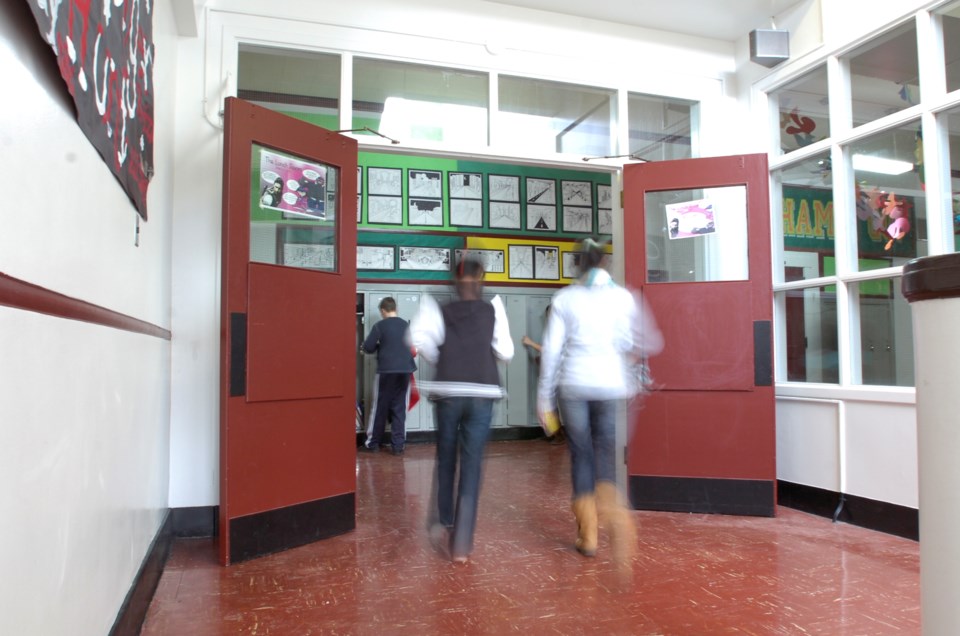In an ideal world, every child would have all of her needs met, would thrive and fulfil his highest potential.
While we don’t live in such a world — I like to think that’s due to fiscal restraints — here are a few ideas that could go a long way in 2018 towards brighter futures for many.
Childcare
Universal childcare is coming to B.C. — I expect signs of it in this February’s provincial budget. I fully support this; children who receive high quality childcare in their youngest years do better in their adult years. However, the cost could be astronomical. That’s why I hope reasonableness is the order of the day — I am not stuck on $10 a day, as long as the childcare is high quality, affordable and available to everyone. What’s affordable to one family could be very different to what’s affordable to another and I believe the payment should be income based so that the province doesn’t end up breaking the bank.
Teachers’ contract
B.C. teachers fought the government for 15 years, but ultimately won their contract restoration in November 2016. More than a year later, thousands of teachers have been hired throughout the province, but many classrooms are operating without the supports called for in the contract. The time for fighting these rules is over — the required teachers should be in place as soon as possible and games shouldn’t be played over whether to replace teachers who are sick or pull in a specialist teacher to cover for the absence. All kids, including those with special needs, deserve better.
French immersion
I love French and wish I was bilingual. In an ideal world, all kids would be educated in French and English and grow up fluent in both languages. But in the real world, reasonable compromises will have to prevail. While it’s sad that �鶹��ýӳ��cut kindergarten spaces for French immersion, the reality is that teachers who are fluent in French are in short supply. Further, because French immersion classes have fewer students who are English language learners or who have special needs, the French-only classes place a higher burden on English-only classes. My wish is that parents and the powers that be can work together, with patience and respect, to figure out a solution to this thorny issue.
School closures
Schools may have to close. Vancouver’s demographics are changing — schools in dense areas like downtown or False Creek are chock full, while schools in single family neighbourhoods, especially on the East Side, where families used to have many children, have empty classrooms. In order to get new schools built where they’re needed and to get older schools upgraded, some changes are going to have to happen. Last year, when the school board embarked on this process, things got out of hand — the board was fired, folks were accused of bullying, staff went on an en masse medical leave. That, and changes made by the province, put an end to the process, but that doesn’t mean it’s dead forever. Something’s got to give, and most likely, that will eventually mean school closures, or significant changes to how schools are used, such as partnerships with child care or senior care centres. What’s best for kids is if the adults go through this tumultuous process in a calm, non-confrontational manner, which the children will pick up on. The possibilities could be incredible — new, safe, beautiful schools — but it may be painful to get there. Steady heads must prevail.
Aging out of foster care
I’ve been writing about this one for years, but I will say it again. Today, in B.C., foster children lose their support when they turn 19, with the exception of some small programs they can apply for if they are in school or training full-time. Children do not grow up the minute they turn 19. In fact, the latest census shows that 62.6 per cent of young adults aged 20 to 24 still live with their parents. The numbers don’t lie — it’s a tough world for young adults who have to make their own way either through post-secondary education or in the work world without such an education. For that reason alone, foster children in B.C. should be supported past their 19th birthday, through a formal, universal program that provides gradual independence over a period of several years. For the hundreds of children without parents in B.C., a reliable support system that continues past 19 will mean the world of difference.
Tracy Sherlock writes about education and social issues. She can be reached at [email protected].



